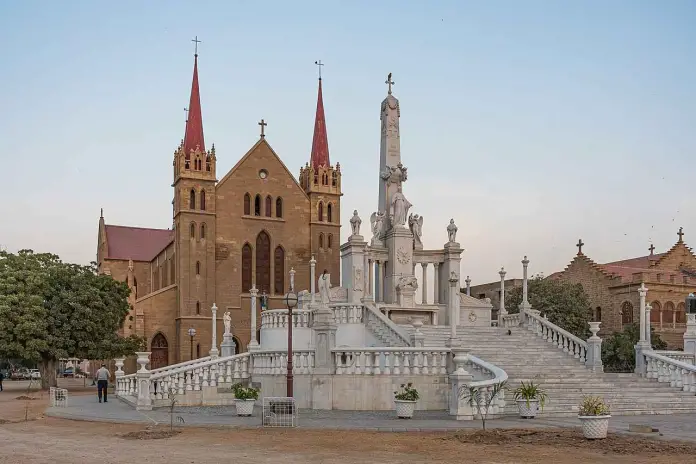Leaders from the minority groups have called upon the government of Pakistan to reassess the decision to amend ‘Protection of Communal Properties Act’.
In a unanimous resolution adopted during a roundtable conference in Lahore on Friday, the representatives of the minority groups urged Senate to return the said act to the National Assembly which was passed on June 26, 2021 by the latter.
The consortium was headed by the Center for Social Justice and had the representation from human rights experts, religious leaders, and lawyers.
Director of Centre for Social Justice Peter Jacob regretted that the places of worship belonging to minorities were attacked every now and then, due to which the government had to spend billions of rupees from taxpayer’s money on rehabilitation of victims of these attacks and their properties.
“There needs to be a deeper introspection about the causes and circumstances involving these attacks as they cause tremendous human suffering and social unrest as well as bringing a bad name to the country,” he stated.
In March 2021, the Supreme Court of Pakistan (SCP) directed a forensic audit of the communal properties managed by the Evacuee Trust Property Board that originally belonged to Hindus and Sikh communities. The Supreme Court also directed the Auditor General of Pakistan (AGP) to complete the audit within six months (till September 2021).
Meanwhile, the National Assembly passed a bill on June 26 seeking to amend the Protection of Communal Properties Act 2001, which is still in process in the Senate.
However, the Christian activists are skeptical that the proposed amendments will open doors for fraudulent sale and purchase of Christian communal properties.
Dr. Yaqoob Khan Bangash, a well-known historian and educationist, evaluated the situation of communal properties with reference to historical context saying, “We need to create a legal framework through which the community properties of minorities in Pakistan could be safeguarded both from internal corruption and the land mafia,” he stated.
He also put forward a formal proposal of a mechanism where the churches in Pakistan and their organizations could be empowered to make informed and legal decisions and be held accountable for these decisions as it was the best way forward.
Most of the Reverend Humphrey Peters, the Bishop of Peshawar, the Church of Pakistan and Bishop Leo Paul of Multan demanded that the government protected the life, liberty, and dignity of minorities which were the fundamental rights guaranteed in the constitution of Pakistan, and particularly the protection of property under Article 24.
Another member of the Minority Rights Commission, Albert David stated that the properties belonging to the churches all over Pakistan are situated at prime locations carrying huge worth whereas these places are communal assets and sacred trusts.
“I denounce the mafias operating on two sides, illegal sellers and buyers in strongest terms who continue to operate freely,” he remarked. He also claimed that he had already conveyed his concerns regarding the bill to the chairman of the commission.
Furthermore, a resolution was passed during the round table conference calling upon the federal and provincial government to ensure that communal properties that were illegally transferred, encroached, or sold to anyone be restored and rehabilitated in their original shape and position under the Evacuee Trust Property Board.







